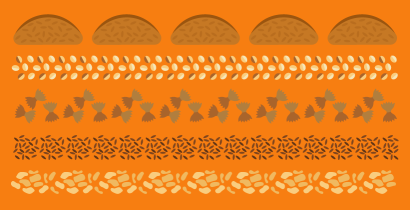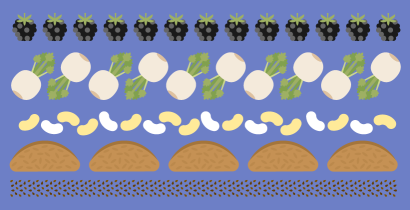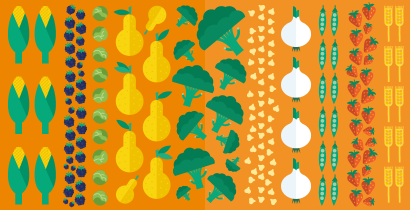Whole grain and fibre
Starches are complex carbohydrates, found in staple foods like bread, pasta, potatoes, rice, couscous. In a balanced diet, starchy foods are our main source of energy, and it is recommended that about a third of our diets are made up of these types of foods.
Starchy foods, but also fruits and vegetables, also provide fibres, which are important for digestive health. It is recommended that we consume at least 25 g of fibre a day, from beans and pulses, whole grains, fruits and vegetables.
Whole grain (Q&A)
26 October 2023Eating whole grains as part of a healthy diet may help to reduce the risk of many common diseases. Find easy tips on how to identify whole grain products and increase your everyday consumption.
Recommended daily intake of fibre and fibre-rich foods to help you achieve it
26 October 2023Fibre is important for our health and well-being. Yet, most of us do not eat the recommended amount. Which foods can we incorporate in our diet to help us get closer to our daily fibre target?
What is dietary fibre and is it beneficial?
05 August 2020This article discusses the definition of dietary fibre, the range of health benefits associated with its intake and how to get more fibre into your diet.
Make the switch to whole grain!
06 April 2018Many national dishes are traditionally made with refined grains. Break cultural barriers by switching your favourite recipes to whole grain! Look for the whole grain version in the shops, or why not try making your own? Whole grains can add taste, texture and nutritional value to meals, plus your friends and family will be impressed by your creativity!
Dietary fibre: What’s its role in a healthy diet?
03 June 2005Although dietary fibre is not a ‘nutrient’, it is nevertheless an important component of our diets. The fact that it passes through the body without being absorbed is the main reason why fibre is so important.




